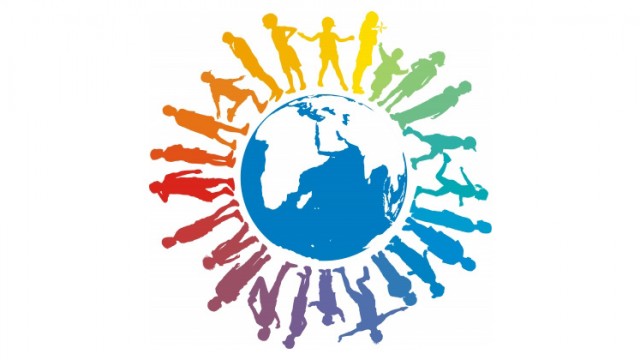Time To Ratify The Hague Convention
A number of international organisations have recently stated that Pakistan is a safe haven where children from Europe and the rest of the world are taken by their parents or relatives. This is because of the increase in multi-cultural and inter-racial marriages between Pakistani men and foreign women. On account of divorce or separation the children are taken away from their habitual residence to another country of residence by one of their parents or relatives in fear of custody being given to the other parent whose case for getting custody is stronger than that of the abductor parent.
In order to cater to international child abductions the judiciaries of Pakistan and the UK have signed a protocol to address the issue of international child abduction. A number of children are being taken to Pakistan from the UK by a parent avoiding custody proceedings in the UK. It was agreed that Pakistan will transform the protocol into law in order for it to be binding upon the local courts of Pakistan while deciding the custody disputes between the Pakistani citizen, generally the father and British national mother, involving minors. It is a move made by the judiciaries of Pakistan and the UK to address the widespread issue of parental abduction. Since then no serious effort has been made by Pakistan to transform it into law after so many years so that it becomes binding upon the courts to apply it while deciding custody disputes involving Pakistanis and Britishers (father and mother). I have seen some judgments of the Supreme Court (SC) of Pakistan in which, while deciding the custody matter involving the British and Pakistani couple and their minor child, it applied UK-Pakistan Protocol provisions to reach sound and solid reasoning.
The protocol is very precise and detailed in its true spirit covering all aspects of judicial cooperation between the two nations. Guardian courts and even the High Courts do not pay attention to the UK-Pakistan Protocol on child matters at all and decide matters concerning custody under the ordinary Guardians and Wards Act (GWA) VIII of 1890. The said act was enacted during the era of the British Raj by British India. Prior to this, custody laws in India were scattered and no set law was in place dealing with child custody. The GWA of 1890 uniformed the law concerning child custody all over India and joined all scattered custody laws in India.
Child custody is a legal issue that is unaddressed in Pakistan and even in other South Asian Association for Regional Cooperation (SAARC) member states. SAARC member states must join hands and include child custody into the SAARC agenda, thereby enacting uniform child custody laws. Furthermore, robust policies and laws are needed to address the issue of child abduction, which can only be achieved if SAARC member states include this issue in the SAARC agenda. The issue of child abduction arises when a married couple develops differences, resulting in divorce or separation.
Even though Pakistan signed a judicial understanding with the UK judiciary, children from the rest of the world — for instance the US, France, Canada, etc — are being taken to Pakistan by a parent or relative. No formal data is available to date on how children have been wrongfully or wilfully removed from their countries and taken to Pakistan. Pakistan has no single treaty with such countries as the issue of international child abduction is not yet a topmost priority here. Pakistan has to ratify the Hague Convention concerning child matters, which was promulgated in 1980 under the supervision of the United Nations. There are more than 80 countries that have signed it and abide by it. The Hague Convention is an international treaty enacted to cater to the abduction of children out of the country. The Hague Convention seeks the immediate and smooth return of children taken away from their habitual residence to a non-habitual residence, generally Asian countries. The convention demands from member states that children should be returned to the country of their habitual residence and let the local guardian/family courts of the child’s country decide the custody matter. The Hague Convention categorically affirms that it is not there to decide custody matters; rather the basic purpose is to bring children back to their countries.
In culmination, Pakistan should include international child abduction in the SAARC agenda as there is a rapid increase in child abduction across South Asia. Only 40 children were abducted and brought to Pakistan from the UK by a single parent, mostly the father in 2013. In view of the discussion above, Pakistan should treat international child abduction as a high priority so as to prevent children being sent or taken to Pakistan. In order to do so Pakistan, in cooperation with all the stakeholders, should raise public awareness to build a case for ratification of the Hague Convention that deals with international child abduction. Pakistan already signed a Judicial Cooperation Protocol with the UK way back in 2006 to prevent British children from being taken to Pakistan by a parent on account of marital disputes and conflicts. The Hague Convention is a complete code and provides a platform to promptly bring back children taken away from their country of habitual residence by a parent ignoring visitation decrees or in violation of custody. If Pakistan ratifies the Hague Convention, international child abduction will decrease and the action of ratification will also promote legal uniformity and harmony with those countries that have already ratified it.
This article was previously published in Daily Times and it is being republished here with permission.
The views expressed in this article are those of the author and do not necessarily represent the views of CourtingTheLaw.com or any organization with which he might be associated.


